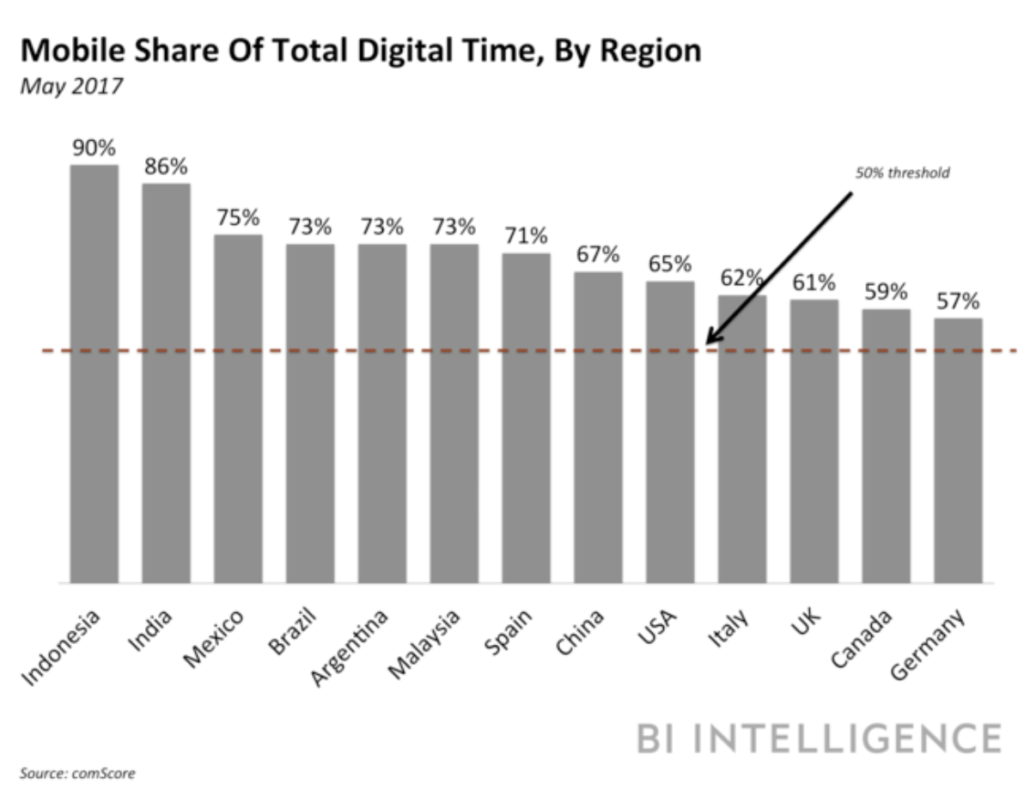Posted by Max
Responsive
The first question you may be asking yourself is: what exactly does it mean for a website to be responsive? To design a website responsively means that no matter what device a user views from, the site automatically adapts and adjusts to provide the best possible user experience.
This is important not just to make your users happy, but it provides many benefits beyond that which could be costing you your bottom line.
Data
Did you know that in the U.S. over 65% of digital time is spent on mobile devices? That number goes up to upwards of 85% in developing countries such as India and Indonesia. This means that if you don’t properly develop to be responsive for all devices, you will miss out on over 65% of your potential customer base.

Ignoring the user experience aspect, Google placed a large significance on search engine ranking based on a site’s mobile design. They will be rolling out what they call a “Mobile First Search”. This means they will base your search rankings by the mobile version of your website rather than the desktop version. This is great news for those who already take advantage of responsive design. However, those with outdated and older websites will soon fall to the wayside in rankings against modern sites.
A website that provides a great experience no matter what device means that your customers will have an easier time navigating your site, experience faster loading times, and ultimately will increase your conversions. Lower bounce rates improve your search signals and increase your search rankings. Ultimately, there is no excuse for not having a responsive website. If you’d like a free evaluation of your existing site, contact Pulse Marketing today, we’d love to take you for a cup of coffee!

